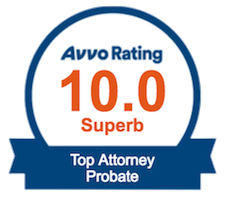Living Trust FAQs at Goldberg & Goldberg
An Overview of Living Trusts – Your Tool for Bypassing Probate
What Exactly Is a Living Trust?
A living trust constitutes a legal framework wherein a trustee holds property on behalf of a beneficiary. The twist is, with a living trust, you have the option to be the trustee of your own assets, retaining full authority. Differently termed as an “inter vivos” trust, a living trust is created during one’s lifetime, as opposed to being set up posthumously.
Why Should I Consider a Living Trust?
One of the principal perks of establishing a living trust is the avoidance of probate court for the property within the trust. Probate, the legal process of debt settlement and asset distribution after death, can be lengthy and costly, potentially diluting the inheritable estate by up to 5% due to legal and court expenses. Not everyone requires a living trust, but for many, it’s an effective estate planning tool.
How Can a Living Trust Circumvent Probate?
By placing your property in a living trust before passing away, you excise the need for probate. The appointed successor trustee simply moves ownership to the trust’s beneficiaries without the need for court or legal intervention – typically this is achieved within a few weeks and spares any additional fees.
What’s the Cost of Setting Up a Living Trust?
Crafting a basic living trust can be as straightforward as preparing a will. With quality guidance from a self-help book or a robust software program, you can draft a living trust declaration yourself. Nevertheless, for more intricate situations or lingering questions, consulting with a lawyer – which might still not necessitate exorbitant fees – could be wise.
Is Managing a Living Trust a Complex Task?
While maintaining a living trust requires diligence, particularly with documentation (such as deeding a house to yourself as trustee), the increased commonness of living trusts has simplified the process considerably.
Will the Details of My Living Trust Be Public Information?
Unlike a will, which becomes public through the probate process along with associated documentation, a living trust remains confidential and does not need to be disclosed.
Are the Contents of a Living Trust Protected Against Creditors?
No, a living trust does not shield assets from your creditors. Your debts may remain legitimate against the property, even after your demise. Creditors could assert claims against your estate up to the value of the assets transferred via the trust. However, the probate process does have time-bound restrictions for creditor claims, which may inadvertently shield the property from belated claims.
Do I Still Require a Will if I Have a Living Trust?
Indeed, even with a living trust in place, having a will is still crucial. It covers any property that did not make it into the trust and ensures your estate is managed according to your wishes, should unexpected assets surface. Without a will, unaccounted-for assets would be distributed according to state laws, which may not align with your intentions.
Can a Living Trust Offer Estate Tax Advantages?
A straightforward, probate-avoidance living trust typically does not affect estate taxes. While AB trusts were a past method for estate tax savings amongst couples, larger exemptions and spousal portability now make them a less common necessity.
For any assistance or to arrange a Free Consultation regarding living trusts and your estate planning, please reach out to Goldberg & Goldberg at (301) 654-5757. We’re here to ensure your peace of mind and to help navigate the complexities of estate management.




